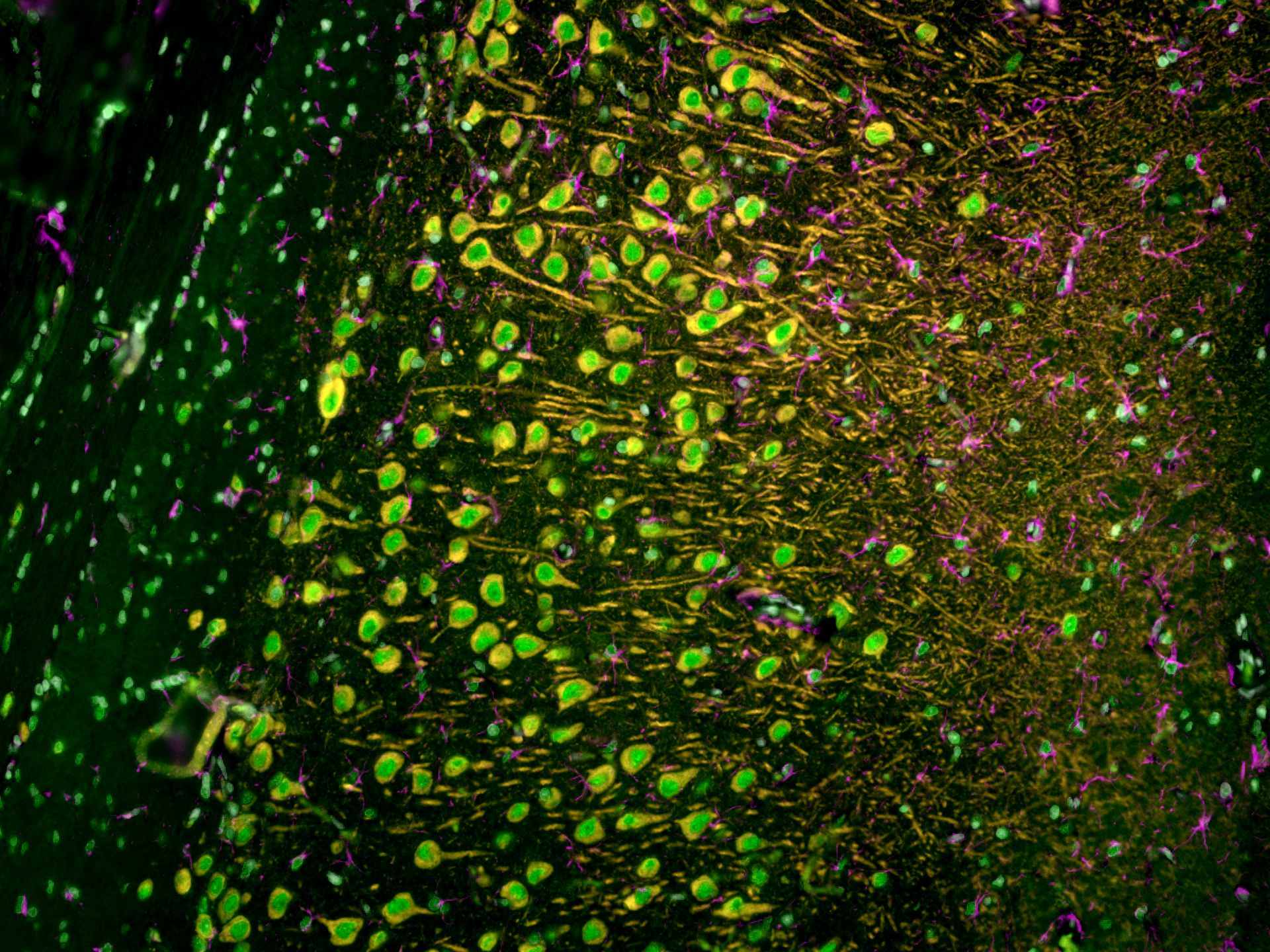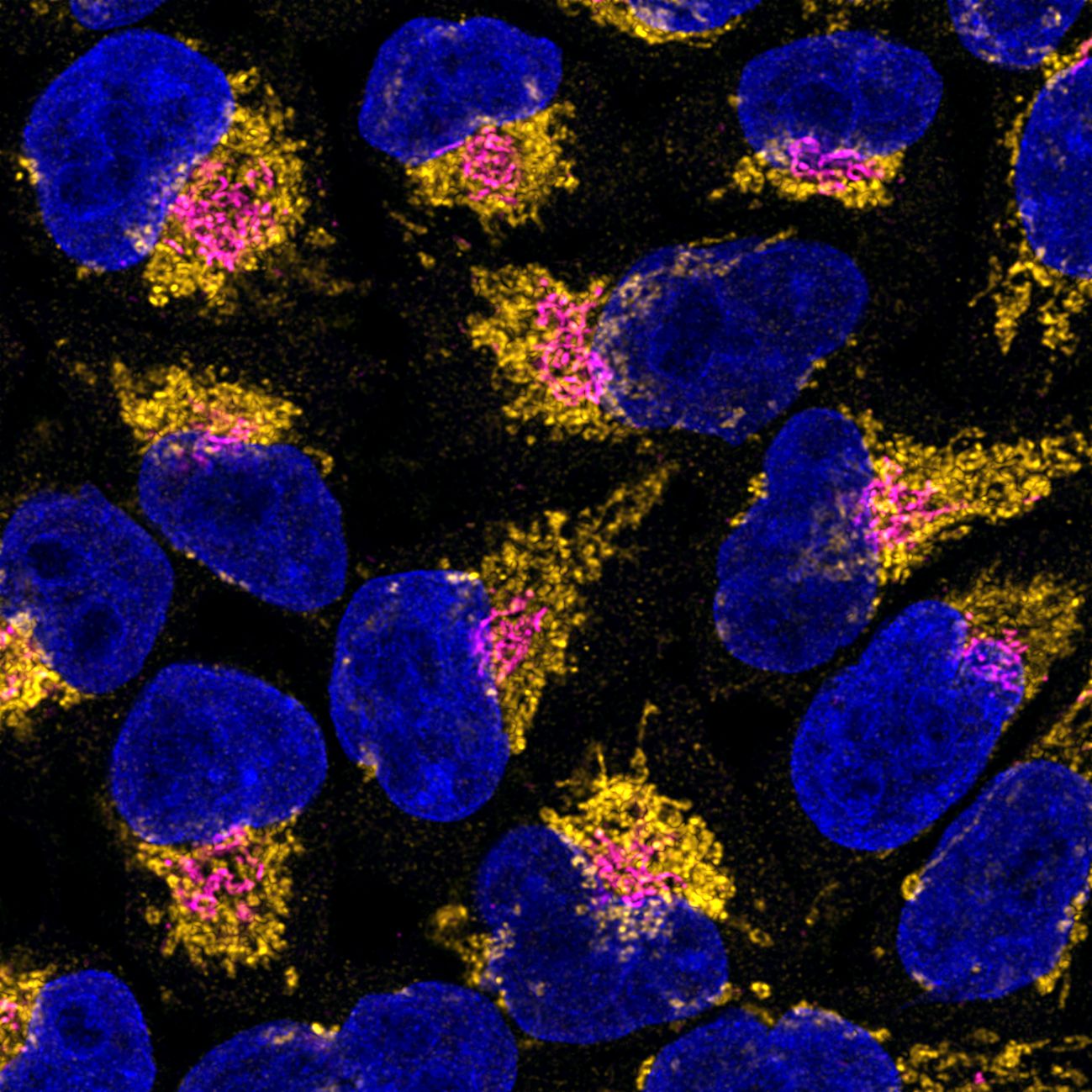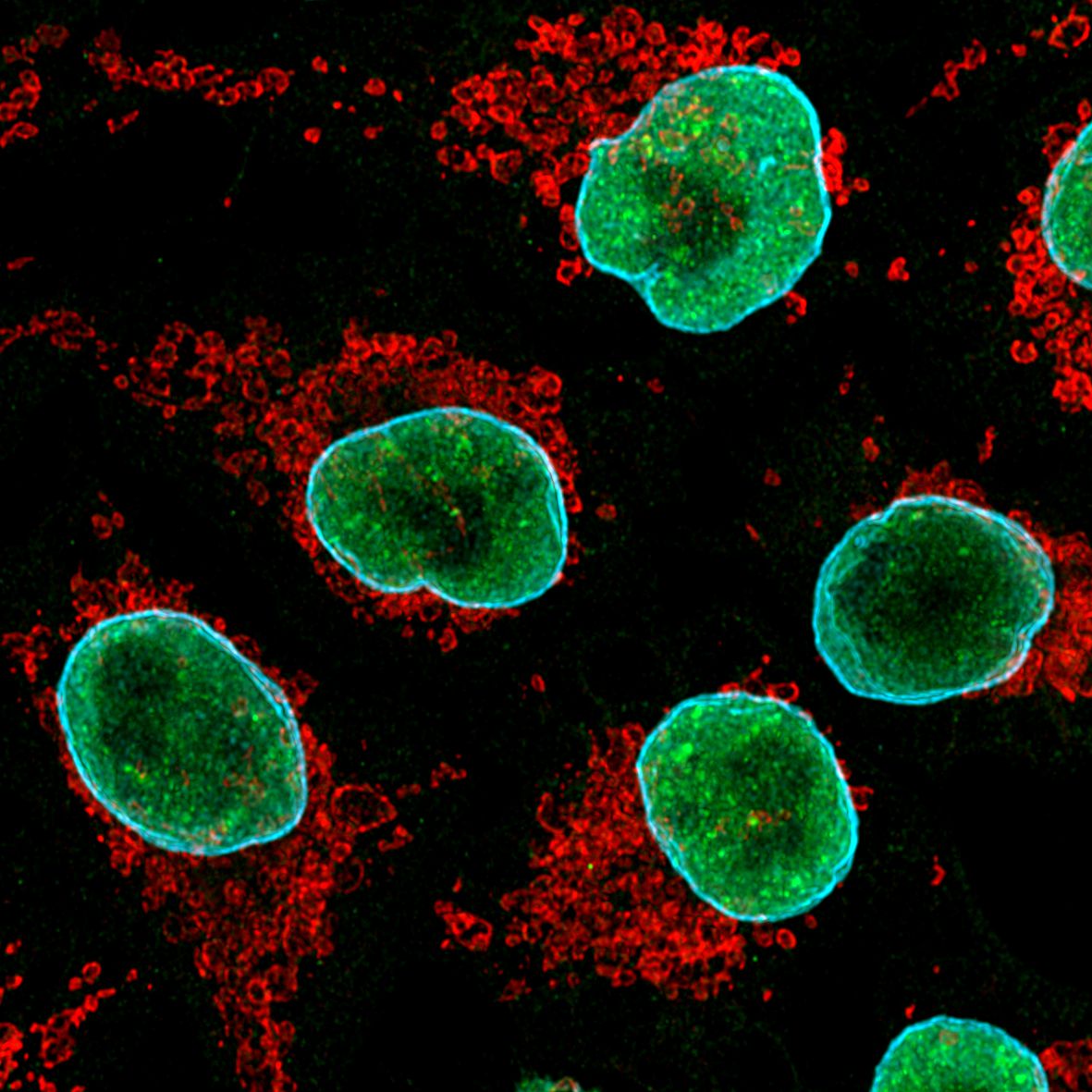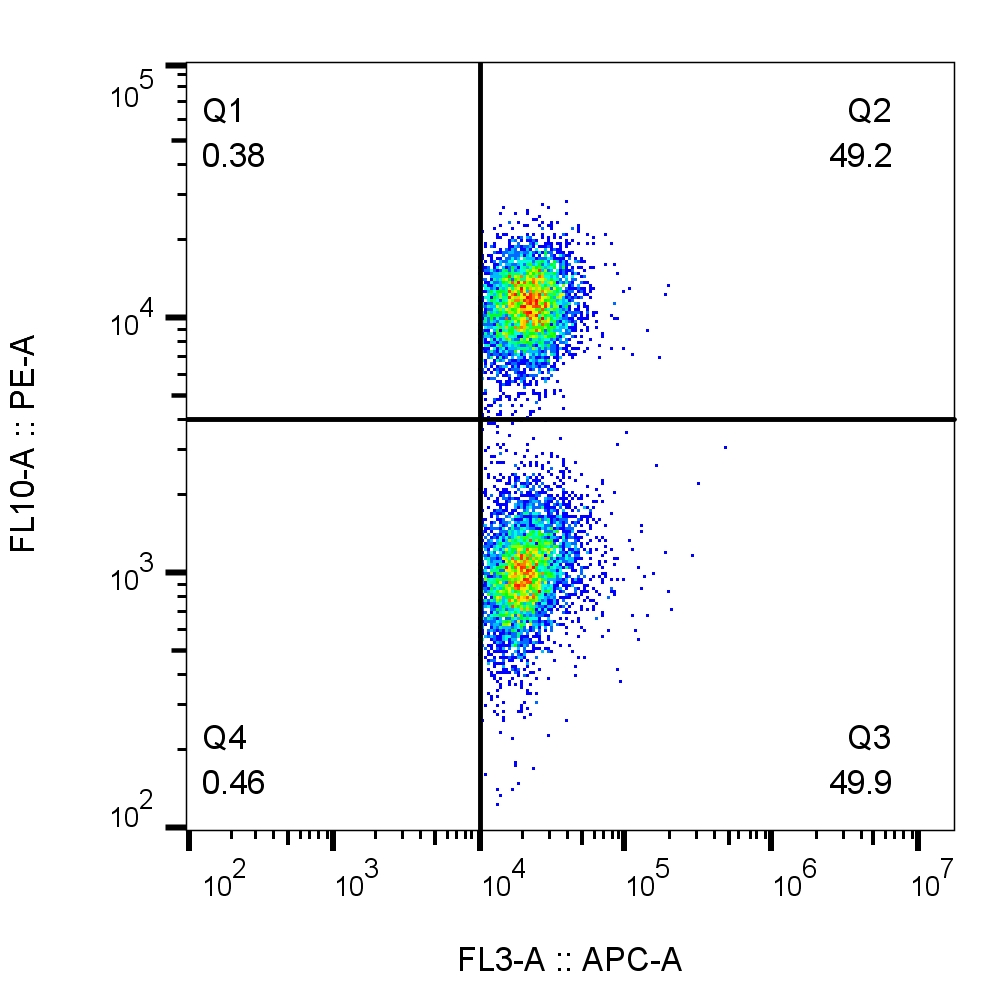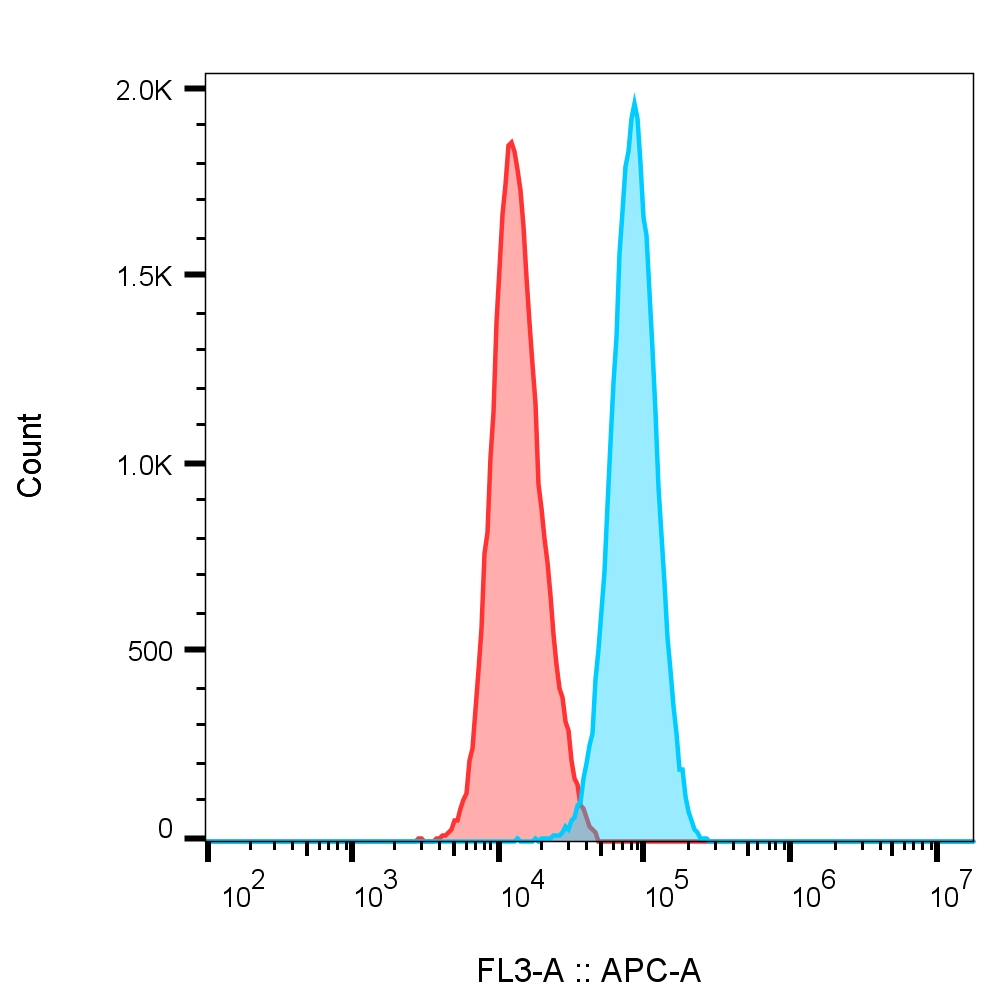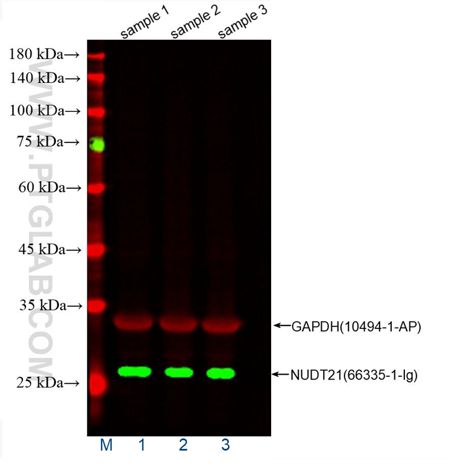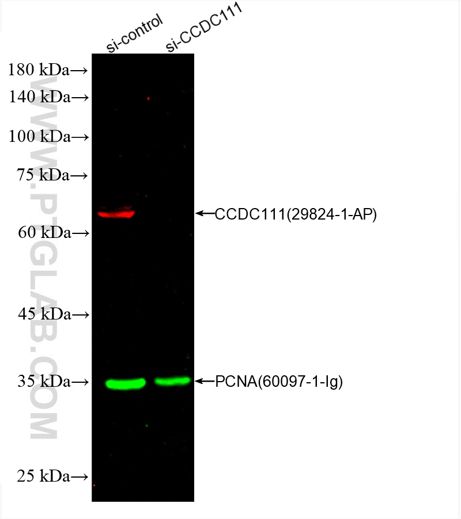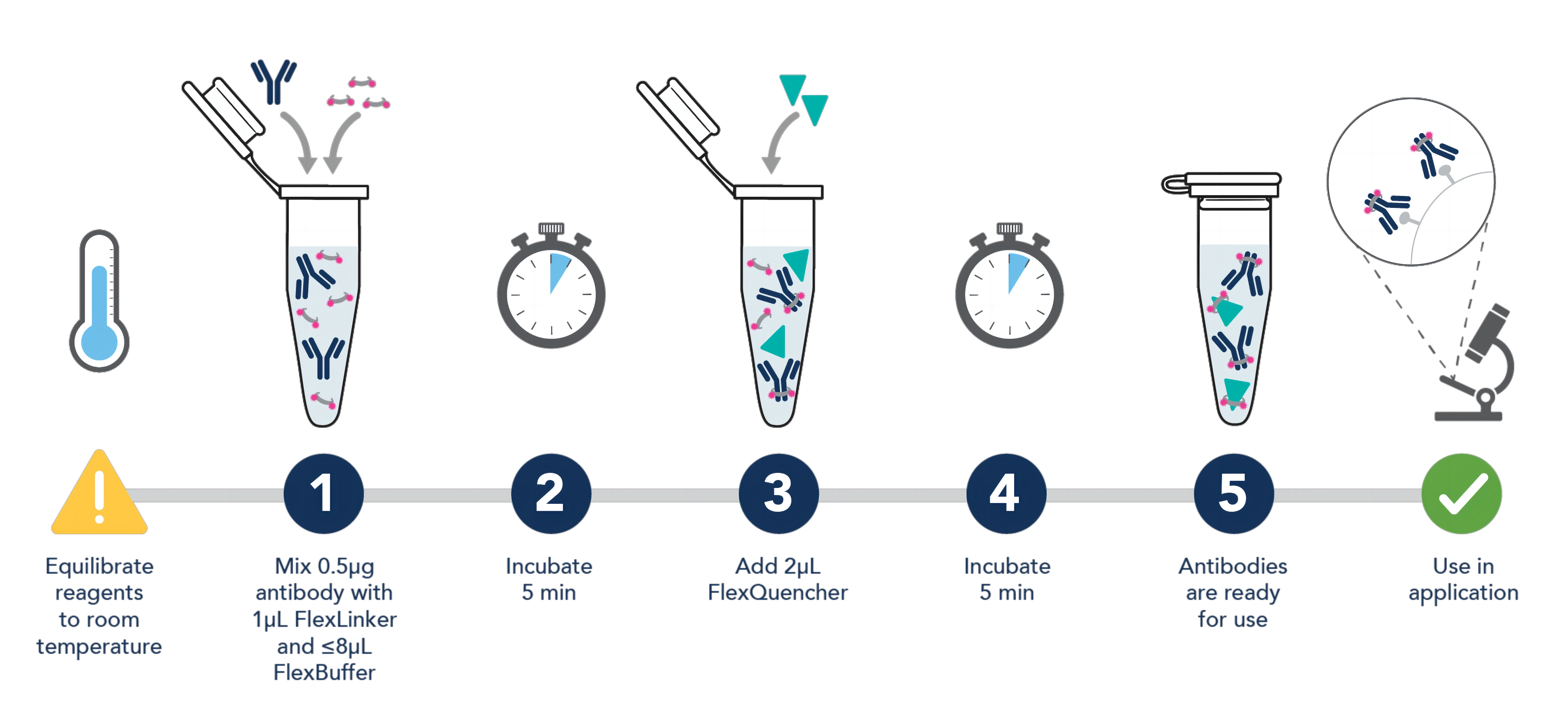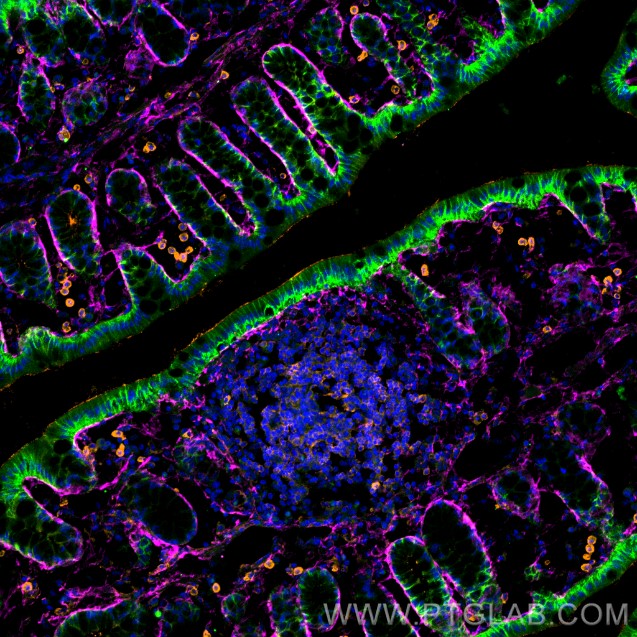Validation Data Gallery
Product Information
FlexAble CoraLite® Plus 647 Antibody Labeling Kit for Rabbit IgG is a novel antibody labeling kit that uses an affinity linker to conjugate CoraLite® Plus 647 in any buffer condition to rabbit IgG primary antibodies from any supplier. One labeling reaction requires only 0.5µg of antibody – regardless of the antibody concentration. Label your rabbit IgG antibody in <10 min without any additional equipment.
| Product name | FlexAble CoraLite® Plus 647 Antibody Labeling Kit for Rabbit IgG |
| Assay type | Antibody labeling |
| Tested applications | IF, FC, WB |
| Species Reactivity | Rabbit IgG |
| Antibody amount per labeling reaction | 0.5 µg antibody |
| Conjugate | CoraLite® Plus 647 |
| Excitation/Emission maxima wavelengths | 654 nm / 674 nm |
Kit Components
| Component | 10rxns | 50rxns | 200rxns |
|---|---|---|---|
| FlexBuffer | 100ul | 500ul | 4*500ul |
| FlexLinker CoraLite® Plus 647 for Rabbit IgG | 10ul | 50ul | 4*50ul |
| FlexQuencher for Rabbit IgG | 20ul | 100ul | 4*100ul |
Storage Condition
Store for 1 year at -20°C or for 6 months at +4°C upon receipt. Avoid exposure to lightFAQ
Q: What are the FlexLinker, FlexQuencher and FlexBuffer?
A: The FlexLinker is a small polypeptide to which dyes are covalently conjugated that can label unconjugated primary antibodies. The FlexQuencher is an Fc-containing fragment that neutralizes the excess FlexLinker. The FlexBuffer is a PBS-based buffer.
Q: What is the largest quantity I can label?
A: With a standard kit size (50 reactions), you can label 25 µg of one antibody or up to 50 different antibodies. You can easily scale up the antibody amount per labeling approach.
Q: What is the lowest concentration of my primary antibody that I can use?
A: Our protocol uses 0.5 µg of primary antibody in 7 µL, which ends up at 0.07 mg/mL. If the concentration of your antibody is lower, you can also use a larger volume than 7 µL.
Q: Can I label primary antibodies stored in BSA, glycerol, Tris buffer and/or preservatives?
A: Yes, FlexAble Antibody Labeling Kits have been validated with carriers and amine buffers. Neither BSA nor amine buffers, in any chosen concentration, interfere with the labeling. 50% glycerol as well as preservatives like sodium azide are also compatible with the kit.
Q: How many different primary antibodies can I label with one kit?
A: You can label up to 50 different antibodies with our FlexAble 50 rxn Kit, and up to 10 antibodies with our FlexAble 10 rxn Kit.
Q: Will I observe cross-reactivity/leaking when I use two FlexAble-labeled antibodies from the same species during multiplexing?
A: FlexAble labels primary antibodies with a high affinity FlexLinker. Dissociation of FlexLinker from one antibody and association to another antibody is rare. If you observe leaking, we recommend adding more FlexQuencher to remove unbound FlexLinker, or you can try sequential staining of the labeled antibodies.
Publications
| Application | Title |
|---|---|
Cell Metab Acetate enables metabolic fitness and cognitive performance during sleep disruption | |
Int J Mol Sci Molecular Physiological Evidence for the Role of Na+-Cl- Co-Transporter in Branchial Na+ Uptake in Freshwater Teleosts | |
J Biol Chem The ROGDI protein mutated in Kohlschutter-Tonz syndrome is a novel subunit of the Rabconnectin-3 complex implicated in V-ATPase assembly | |
J Cell Sci Iterative Bleaching Extends Multiplexity (IBEX) facilitates simultaneous identification of all major retinal cell types | |
Mol Immunol Shikonin hastens diabetic wound healing by inhibiting M1 macrophage polarisation through the MAPK signaling pathway |

